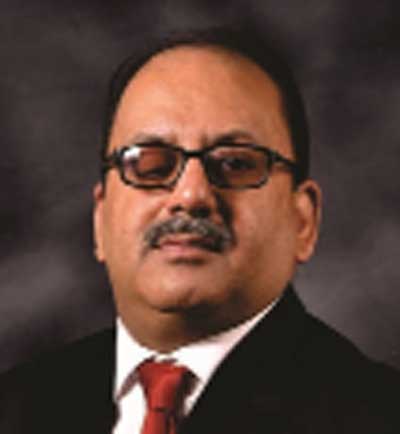Robert D Kaplan in his book ‘The Return of Marco Polo’s world: war, strategy and US interest in the 21st century says, “No other country symbolizes the US decline as much as Afghanistan. There is no possibility of a military victory over Taliban”. Fighting a longest war of its history and spending up to one trillion dollars on War on Terror,one can say now, with utmost clarity that United States’ policy of using force to get its objectives achieved in Afghanistan has utterly failed and seen a horrible defeat. Historical dissection of the stated facts aptly suggest that the militarysolution would have never worked in Afghanistan even that was in the case of America a technologically advanced and militarily powerful country.
Now that, a notion, as it goes for Afghanistan; a graveyard of world empires especially for those that have tried to dominate the political landscape of the country in the past i.e. the Britishand then the Soviets and now the United States of America has become true in its essence. As there is a popular saying, “One can rent it but cannot by it” best fits on the US occupation of Afghanistan extended for a period of 20 long yearsand resultantly its decision to leave the country to its people and complete the withdrawal by August this year.
Reading the literature on how the techniques of conflict resolution work one comes across the only dominant feature in international politics that is ‘dialogue’. It is historically proven fact that when countries engage in dialogue and discussion they ultimately reach at some point where peace is cherished in future. Europe after exhausting itself by fighting two bloody World Wars was forced to find a solution by peaceful means.
As a result, European Union was made in order to connect each country in Europe politically and economically to avoid any possibility of war in future. In the same way after the failure of Obama’s policy of seek and defeat Taliban a new round of talks was initiated in Qatar- popularly known as Qatar Talks to discuss peace and revitalize efforts to bring stability in the region. With the help of several regional stakeholders especially Pakistan Qatar roundtables culminated in Doha Peace Accord in February 2020.
The agreement included withdrawal of US and NATO forces from Afghanistan and in return Taliban will make sure that Afghan territory is not used to launch terrorist attacks on US and its allies. After the foreign forces’ withdrawal efforts were to be made for intra-Afghan dialogue to bring an all-inclusive government. Thus, it is yet to be seen how valuable these talks are given the current account of violence and struggle of power in Afghanistan after the political vacuum created by the United States’ hasty withdrawal.
Taliban seeing their victory in the war against America has unleashed a wave of terror and occupation of Afghanistan’s major strategic cities. Intra-Afghan dialogue an essential element to talk peace and bring inclusive government in Afghanistan seemsa pipe dream. In a multi-ethnic society like Afghanistan, it is very challenging to bring all the warring factions on the single table facing each other. Their interests within the country differ in many a way especially over the issue of state structure that whether it should be a secular democratic polity where everybodypossessthe right to vote without any distinction of sex, color, creed etc. or a theocratic state based on Saudi model. Taliban as always has vehemently campaigned for establishing an Islamic Emirate where clergy possess most of the state powers. On the contrary, the educated urban class Afghanis wants a more liberal styled state structure where women and minorities enjoy a fair amount of freedom and liberty.
The fear of civil war looms large in Afghanistan. As it seems Taliban is hell bent on taking the country militarily. Once again large number of people will be displaced and become refugees. In this way, the region will have to bear the brunt especially in case of Pakistan that currently hosts 30 lack Afghan nationals and lack further resources to carry the burden of more refugees coming. Along with it, the civil war will drag Afghanistan further into the endless chaos, violence and instability. Another spillover effect of the civil war in the immediateneighborhoodof Pakistan will be a terrorist infiltration especially that of Tehrik-e-Taliban Pakistan TTP responsible for several deadly attacks on civilians as well as on military personals.
Issues of economy and governance pose a greater challenge to any government gaining power in Afghanistan. Administratively, it is a large country which needs experienced, skilled and well-educated human resource to carry on the tasks of bureaucratic machinery. Institutions that play major part in uplifting any country from poverty, economic slowdown, corruption and other similar crises are nonexistent in Afghanistan. Infrastructure in there is in very bad shape and will require huge investment to keep it working. Till now America used to spend 24 billion dollars on Afghan economy and now it is unconfirmed as to how the Afghan economy will sustain without the American aid. Massive investments and trade deals will have to be made when things settle down after the complete withdrawal next month.
As for as Pakistan’s Afghan Policy is concerned it has brought two major changes i.e. doing away with the controversial policy of strategic depth and supporting stable and inclusive government instead of friendly regime. Prime Minister of Pakistan has clarified this position in his write ups and as well as in his interviews. Afghanistan is important for Pakistan on many scores; history, faith, culture, and geography have conjoined both the countries in an inseparable destiny. In this way, Pakistan has always supported an Afghan owned and Afghan led national reconciliation process. Economic development of Pakistan is linked with peace in Afghanistan. Connectivity with Central Asian countries is its major goal with respect to China Pakistan Economic Corridor CPEC.
Pakistan along with other major regional players is trying its best to play every card that can lead to peace and stability in the region. Taliban most likely is considered as a major stakeholder and force to talk with and discuss peaceful transition of power. Along with Tehran Taliban leaders have been hosted at various other capitals of the regions like Moscow, Pakistan and most recently with China. China though shares small border area with Afghanistan but it is very concerned about Uighur fighters present in the North Eastern bordering area.Therefore, China too is vying for stable Afghanistan so as to expand its ambitious Belt and Road Initiative (BRI).
Furthermore, Afghanistan once again is going to be a hub for proxy wars. Another Great Game is underway that will have devastating effects on each country in the region. India in this way, along with spoilers present in Ashraf Ghani Government is leaving no stone unturned in maligning Pakistan’s name and image in the world.
Thus, extensive and heavy diplomatic engagements are needed to bring stability in the region. Only a top down power sharing model is in the best interest of every Afghan civilian that can be achieved when all the factions agree on some point through intra-Afghan dialogue. Major stakeholders must play their role in making that dialogue happen.
Sign in
Welcome! Log into your account
Forgot your password? Get help
Password recovery
Recover your password
A password will be e-mailed to you.







